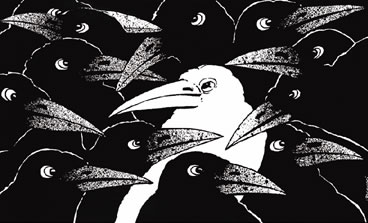
Andrzej Pagowski, Poland
A number of strands in contemporary politics turn on the need, sometimes the demand, for recognition. The need, it can be argued, is one of the driving forces behind nationalist movements in politics. And the demand comes to the fore in a number of ways in today's politics, on behalf of minority or "subaltern" groups, in some forms of feminism and in what is today called the politics of "multiculturalism". The demand for recognition in these latter cases is given urgency by the supposed links between recognition and identity, where this latter term designates something like a person's understanding of who they are, of their fundamental defining characteristics as a human being. The thesis is that our identity is partly shaped by recognition or its absence, often by the misrecognition of others, and so a person or group of people can suffer real damage, real distortion, if the people or society around them mirror back to them a confining or demeaning or contemptible picture of themselves. Nonrecognition or misrecognition can inflict harm, can be a form of oppression, imprisoning someone on a false, distorted, and reduced mode of being.
Charles Taylor
The Artists
Yoko Ono
Takaaki Fujimoto
Yasuyuki Uno
Philippe Apeloig
Yossi Lemel
Long Gang
Sharon Etgar
Jaroslav Sura
Raphie Etgar
Nammala Galada
Lejla Bulja
Jose Rementeria
Fabienne Feltus
Andre de Castro & Sergio Liuzzi
Cedomir Kostovic
Shigeo Fukuda
Joram Rozov
Armando Tejuca
Andrzej Pagowski
Lanny Sommese
Piotr Mlodozeniec
Istvan Orosz
Seymour Chwast
Asim Abu-Shakra
Lex Drawinski
Lex Drawinski (2)
Yarom Vardimon
Dennis Paul
Mervyn Kurlansky
Shigeo Fukuda (2)
Pippo Lionni
Lanny Sommese (2)
Marten Jongema
Letita Bouwer
Beeke Anthon
Folon
Leonard Konopelski
Bojidar Ikonomov
Halmut Brade
Jiri Svetlic
LeeAnn Falciani
Jacqueline Bishop
Raphie Etgar (2)
Mark Cross
Geoff Budd
Seymour Chwast (2)
Milton Glaser
Fatima Miranda
